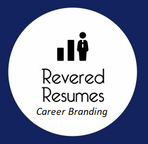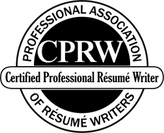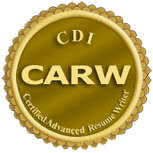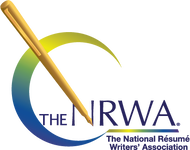|
By: Tiffany Benitez, CPRW, CARW Today's job market has witnessed the proliferation of remote work arrangements as companies take advantage of global talent pools to offer remote working arrangements to employees. Although remote working has numerous benefits, its requirements and expectations differ considerably from traditional office positions; job seekers searching for such positions should tailor their resume appropriately by emphasizing relevant skills as well as emphasizing prior remote experience to increase chances of employment.
Here are a few pointers for adapting and optimizing your resume for remote work: Make the Most of Your Remote Work Experience: If you have previous experience working remotely, be sure to highlight it on your resume. This could include working with remote team members and projects virtually, using communication tools remotely, and working independently and efficiently managing time while communicating clearly when remote working - it will demonstrate to potential employers that you possess all of the skills required for success in such settings. Communicate Clearly: Communication skills are paramount in remote work environments since virtual tools will likely play a pivotal role. Highlight them on your resume to demonstrate your abilities to write clear emails, use video conferencing software efficiently, collaborate effectively with remote team members, and collaborate effectively on tasks together with them. Also, provide specific examples of when you have successfully communicated in this setting. Assert Your Technical Skills: As remote work environments rely heavily on technology for productivity, be sure to highlight all your technical abilities on your resume - such as proficiency with virtual communication tools, project management software, or any relevant applications used frequently within them. Also, highlight experience using software or tools commonly found within remote work environments when writing your resume. Customize Your Resume for Each Application: Tailoring each resume application carefully will help ensure it satisfies the unique requirements and expectations for a particular position. Reviewing job descriptions carefully, adjust resumes accordingly - for instance, if communication skills are emphasized in an employment offer then emphasize them! Also, include relevant keywords from job ads in your application so it stands out to recruiters/hiring managers more easily. Include Keywords Related to Remote Work: Many employers utilize applicant tracking systems (ATSs) to screen resumes before being reviewed by hiring managers, so to increase its odds of making it through, include relevant remote work keywords in your resume relating to remote working experience, virtual communication tools, virtual collaboration opportunities, video conferencing events or telecommuting experiences. Such keywords could include virtual communication; remote collaboration; video conferencing events or telecommuting experience among many more specialized terms related to remote working environments. For instance: "virtual communication; remote collaboration," video conferencing," videoconferencing", Telecommuting". Demonstrate Results: Employers want candidates who can deliver tangible outcomes regardless of where they work remotely, so be specific in your descriptions and use concrete examples of how remote work tools and skills have enabled you to deliver those outcomes. Showcase your experience leading remote teams and working closely with remote colleagues. Include any experience managing virtual projects as evidence. As an example, a manager could discuss their success in delegating tasks to various locations and then overseeing their progress to ensure projects were finished on schedule. As many employers may harbor reservations regarding remote workers' effectiveness, you must prove you can still be productive and effective regardless of your working location. One way of showing results is to include specific accomplishments on your resume - for instance, if you manage a team, include metrics about team performance e.g. meeting deadlines or meeting project goals. If you were responsible for sales in an offsite setting, include details of your revenue earned or deals closed as evidence of how you contributed to the success of previous companies or projects. Also, give specific examples that demonstrate this contribution to success. Examples may include problem-solving, process improvement, and leadership experience in remote work environments. Being specific about this aspect will make you stand out more to potential employers. Remote work has quickly become the standard in today's job market. To increase your odds of landing remote work opportunities, it's essential that your resume emphasizes your remote working experience, and highlights communication and technical abilities as well as relevant keywords and metrics. Job applicants should tailor each resume specifically to each job application they submit and be sure to demonstrate how their past remote work experiences resulted in tangible achievements. With these tips in mind, job seekers can position themselves as strong candidates for remote work opportunities regardless of their location. By demonstrating their experience managing remote teams and using virtual communication tools effectively, job seekers can demonstrate they thrive well within this setting and deliver results for their employers. When applying for a job, a cover letter can sometimes be just as important as your resume. A well-written cover letter can showcase your personality, demonstrate your writing skills, and highlight your qualifications for the job you are applying for. So, how do you structure a cover letter? Below are some helpful tips on how to structure a cover letter that will impress potential employers: Start with a strong opening: Begin your cover letter by introducing yourself and explaining why you are interested in the job. A strong opening can grab the employer's attention and make them want to read on. You can start with a statement about your passion for the industry or the company, or mention where you found the job posting. Highlight your relevant experience: In the body of your cover letter, use examples from your work experience or education to demonstrate your qualifications for the job. Highlight experiences, skills, and achievements that are relevant to the position you are applying for. Use concrete examples to show the employer that you have the skills they are looking for. Explain what you can bring to the company: After sharing your relevant experience, explain what you can bring to the company. Share your strengths and how they can contribute to the company's goals. Make a connection between your skills and the employer's needs. Show enthusiasm and conclude strong: End your cover letter with a strong conclusion that reiterates your interest in the job and your qualifications. Use a positive tone, express your enthusiasm for the opportunity, and indicate that you are available for an interview to discuss your qualifications further. A cover letter is a crucial element of the job application process, as it allows you to showcase your personality, writing skills, and qualifications to potential employers. It gives you the opportunity to provide more context and detail about your experience, skills, and achievements in a way that your resume may not be able to. A well-written cover letter can demonstrate your enthusiasm for the job, show your understanding of the company and its mission, and make you stand out from other applicants. It can also communicate your professionalism and attention to detail, which are essential qualities that employers look for in candidates. Overall, a cover letter can be the deciding factor in whether or not you get an interview, so it's crucial to ensure that it's polished and tailored to the specific job you're applying for. |
Categories
All
Archives
December 2023
|
HOURSM-F: 9am - 5pm
|
|





